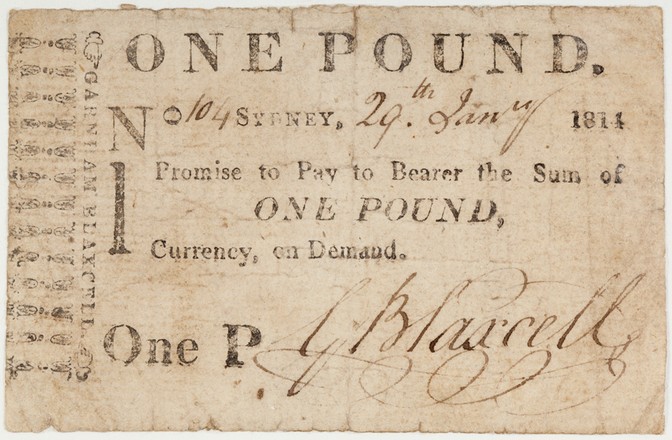
‘I promise to pay …’
promissory note for one pound, 29 January 1814
Printed ephemera
Bequest of Sir William Dixson, 1952
DN / P 262
Printed ephemera
Bequest of Sir William Dixson, 1952
DN / P 262
One of the early free settlers to arrive in Sydney was Garnham Blaxcell. Arriving in October 1802, he quickly won the favour of Governor King and was appointed to several official positions. He also received a number of land grants. But Blaxcell was more interested in commerce than farming, and by the time King’s successor William Bligh was deposed as governor in January 1808, Blaxcell was one of the wealthiest merchants in the colony.
In 1810 Blaxcell was awarded – together with Alexander Riley and D’Arcy Wentworth – a contract to build a general hospital in Sydney. In return, they received the right to import 45,000 gallons of spirits over the next three years, which was traded as an unofficial form of currency. Not long after, in 1814, he wrote this promissory note for the then significant sum of £1.
The hospital was completed in 1816, amid criticism for the poor workmanship and numerous defects. Blaxcell proved to be over-ambitious, and over the next few years lost much of his wealth through unsuccessful trading and speculation. He became indebted to John Macarthur and a number of other leading colonists, and defaulted to the government on the payment of import duties. Learning that the Crown was preparing to recover these debts through the Supreme Court, Blaxcell secretly left the Colony in April 1817. He died at Batavia on 3 October that year.


 Back to list
Back to list